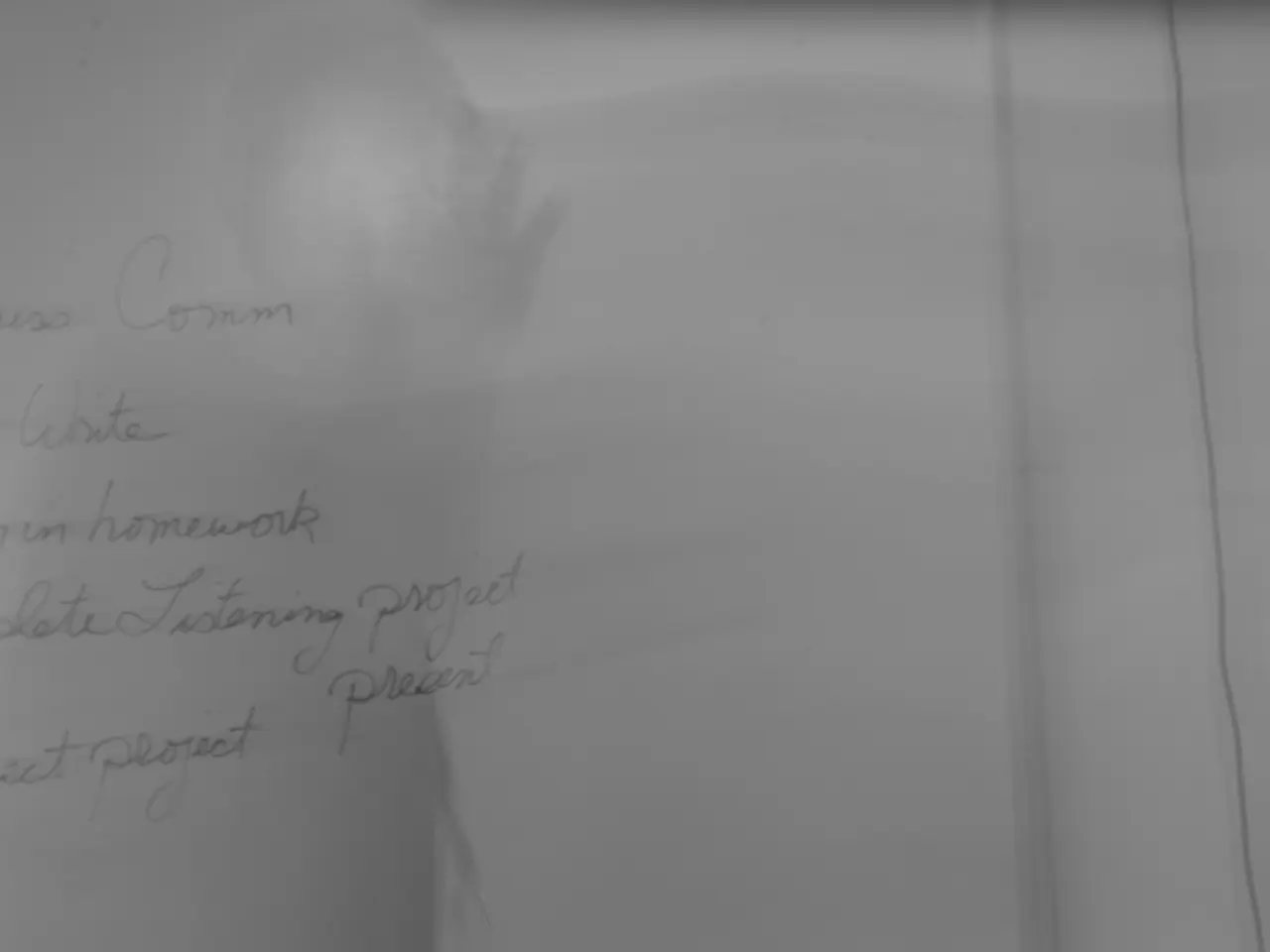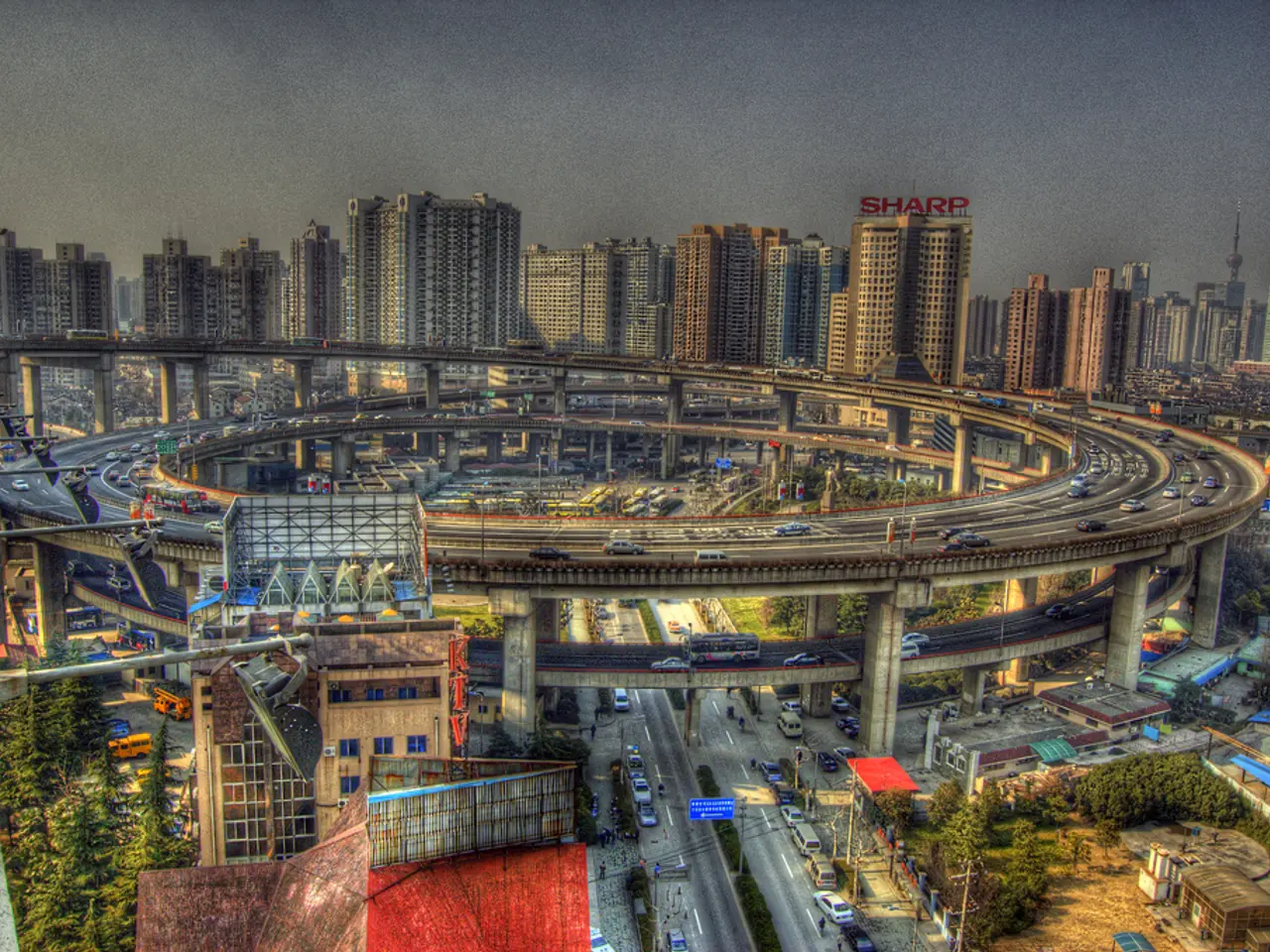Voters in Germany seek Friedrich Merz to apply pressure on Israel
In the past 100 days, Chancellor Friedrich Merz of the Christian Democratic Union (CDU) has been at the helm of Germany, navigating a complex political landscape both domestically and internationally. A recent poll by Deutschlandtrend reveals a significant shift in public opinion regarding Merz's foreign policy towards Israel, particularly the partial export ban on military equipment.
A substantial majority of German voters now want Merz to put increased pressure on Israel, reflecting growing concerns over the humanitarian situation in Gaza. This is a departure from the traditional unconditional support for Israel that has historically been a cornerstone of German policy. Only 31% of voters still believe Germany has a special responsibility for Israel's existence, indicating a public reevaluation of this long-held sentiment.
Merz's decision to enact a partial ban on military exports that could be used in Gaza has drawn criticism both publicly and within his own party, the CDU, and its Bavarian ally, the CSU. Some conservatives argue that halting weapons exports threatens critical security collaboration between Germany, Israel, and NATO, while others support Merz's stance as a necessary humanitarian response. Coalition partners from the center-left Social Democratic Party (SPD) largely back Merz's decision.
Israeli Prime Minister Netanyahu has criticized Merz, accusing him of succumbing to media pressure and expressing hopes for a reversal of the export ban. The German government's reluctance to supply military equipment that could be used in Gaza aligns with Merz's public statements emphasizing opposition to military solutions that risk civilian casualties and violations of international law.
In the realm of domestic policy, Merz has been focusing on irregular immigration, a contentious issue that has seen his popularity ratings decline. Only 40% of respondents now believe he is capable of effectively combating this issue. The pension, nursing care, and health systems are in desperate need of reform, but the latest survey shows a lack of confidence in the government's ability to take the necessary measures to make these areas fit for the future.
On the economic front, US President Trump has imposed a 15% tariff on most goods from the European Union, and 50% on steel and aluminum. This move has raised concerns among Germans, with a clear majority believing the chancellor should increase pressure on Israel. To counteract these economic challenges, €500 billion has been earmarked for renovating railways, roads, and building schools, and an additional amount for upgrading the German army.
In conclusion, public opinion and political debate in Germany are currently marked by a cautious recalibration of support for Israel, conditional on humanitarian considerations, with the partial arms export ban symbolizing this evolving stance. This shift in public opinion, coupled with economic challenges, presents a complex landscape for Chancellor Merz as he continues to steer Germany forward.
[1] Deutschlandtrend Poll, June 2022 [2] Der Spiegel, June 2022 [3] Bild, June 2022 [4] Süddeutsche Zeitung, June 2022 [5] Frankfurter Allgemeine Zeitung, June 2022
- The partial arms export ban, a move initiated by Chancellor Merz, has spurred ongoing debates in German newspapers like Der Spiegel, Bild, Süddeutsche Zeitung, and Frankfurter Allgemeine Zeitung.
- In the wake of the export ban, the European Union is anticipating potential repercussions from Israeli officials, as reported in general news outlets.
- The European Union, while grappling with the consequences of US President Trump's tariffs on its goods, is also witnessing a recalibration of its policy towards Israel.
- Amidst economic challenges, the German government has set aside €500 billion for infrastructure projects to counteract the impact of the US tariffs.
- The public shift in Germany's stance towards Israel, as revealed by the Deutschlandtrend Poll, has been largely overlooked in discussions about the economic tension between Europe and the US.
- The EU's economic woes extend to the gaming industry, with casino-and-gambling sectors expressing concerns over possible changes in policy-and-legislation in European leagues related to sports-betting.
- In sports, the premier-league has remained a topic of discussion along with controversies surrounding crime-and-justice cases and athlete salaries.
- Poker, a popular casino-game, has been the center of debate due to ongoing mass migration and questions regarding immigration policies.
- Weather forecasts have taken a back seat in the current political and economic climate, with topics such as war-and-conflicts, migration, and politics dominating headlines.
- Ongoing social issues, such as migration and political policies, are overshadowing news about the high-profile world of sports and casino-games.
- As Germany navigates through complex political and economic landscapes, Heads of State in Europe and beyond watch with keen interest, attentive to the political moves that unfold each day.




